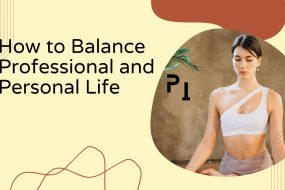
Nutritionists are experts in food and nutrition who advise people on what to eat to be healthy, prevent diseases, or achieve specific goals. Nutritionists can work in various settings, such as hospitals, clinics, schools, community centers, or private practice. They can also specialize in different areas, such as sports nutrition, clinical nutrition, or public health nutrition.
If you are interested in becoming a nutritionist, you may wonder what steps you need to take to pursue this career path. In this article, we will cover the following topics:
- What is a nutritionist and what do they do?
- What are the benefits and challenges of being a nutritionist?
- What are the education and certification requirements for becoming a nutritionist?
- What are the skills and qualities of a successful nutritionist?
- What are the career options and salary prospects for nutritionists?
By the end of this article, you will have a clear idea of how to become a nutritionist and what to expect from this rewarding profession.
Contents
What is a Nutritionist and What Do They Do?
A nutritionist is a professional who studies and provides recommendations about diets for individuals and institutions. They use their knowledge of biochemistry, physiology, genetics, and psychology to understand how nutrients affect the human body and the relationship between nutrition, health, and disease.
Some of the common tasks that nutritionists perform include:
- Evaluating the dietary needs of clients based on their health status, goals, preferences, and lifestyle
- Developing personalized nutrition plans that suit the clients’ needs and objectives
- Providing counseling and education to clients on how to improve their eating habits and make positive changes in their nutrition
- Monitoring and evaluating the progress and outcomes of clients’ nutrition interventions
- Conducting research and staying updated on the latest scientific evidence and guidelines on nutrition
- Writing articles, reports, or presentations to share their knowledge and expertise on nutrition with the public or other professionals
Depending on their work setting and specialization, nutritionists may also collaborate with other health care providers, such as doctors, nurses, dietitians, pharmacists, or therapists. They may also work with specific populations or groups, such as athletes, children, elderly, pregnant women, or people with chronic conditions.
What are the Benefits and Challenges of Being a Nutritionist?
Being a nutritionist can be a fulfilling and rewarding career for many reasons. Some of the benefits of being a nutritionist include:
- Helping people improve their health and well-being through nutrition
- Having a variety of career options and work environments to choose from
- Having flexible work hours and schedules
- Having good earning potential and job growth prospects
- Having opportunities to travel and learn from different cultures and cuisines
- Having opportunities to conduct research and contribute to the advancement of nutritional science
However, being a nutritionist also comes with some challenges that you should be aware of before pursuing this career path. Some of the challenges of being a nutritionist include:
- Dealing with complex and diverse client needs and expectations
- Facing ethical dilemmas and legal issues related to nutrition practice
- Keeping up with the changing regulations and standards in different states or countries
- Coping with stress and emotional demands of working with clients who have health problems or difficulties
- Balancing work and personal life
What are the Education and Certification Requirements for Becoming a Nutritionist?
The education and certification requirements for becoming a nutritionist vary depending on the state or country where you want to practice. However, in general, you will need to complete the following steps:
- Earn a bachelor’s degree in nutrition or a related field from an accredited program. Some common majors include food science, dietetics, public health, or biochemistry. You will learn about the basic principles of human nutrition, food chemistry, metabolism, physiology, microbiology, psychology, statistics, research methods, and more.
- Gain practical experience through internships or volunteer work. You will have the opportunity to apply your knowledge and skills in real-world settings under the supervision of experienced professionals. You will also develop your communication, problem-solving, teamwork, and leadership skills.
- Obtain a license or certification from a recognized organization. Depending on where you live or work, you may need to pass an exam or meet other criteria to demonstrate your competence and credibility as a nutritionist. Some common credentials include:
- Registered Dietitian Nutritionist (RDN) from the Commission on Dietetic Registration (CDR)
- Certified Nutrition Specialist (CNS) from the Board for Certification of Nutrition Specialists (BCNS)
- Certified Clinical Nutritionist (CCN) from the Clinical Nutrition Certification Board (CNCB)
- Pursue continuing education or advanced degrees. To maintain your license or certification, you will need to complete a certain number of hours or credits of continuing education every few years. You will also need to stay updated on the latest research and developments in nutrition. You may also choose to pursue a master’s or doctoral degree in nutrition or a related field to enhance your knowledge, skills, and career opportunities.
What are the Skills and Qualities of a Successful Nutritionist?
To be a successful nutritionist, you will need to have a combination of hard and soft skills, as well as personal qualities that will help you perform your duties effectively and efficiently. Some of the essential skills and qualities of a successful nutritionist include:
- Scientific and analytical skills: You will need to have a strong foundation in the natural and social sciences, as well as the ability to interpret and apply data, evidence, and research findings to your practice.
- Communication and interpersonal skills: You will need to be able to communicate clearly and persuasively with your clients, colleagues, and other stakeholders. You will also need to be able to listen actively, empathize, and build rapport with your clients.
- Counseling and education skills: You will need to be able to provide guidance, support, and feedback to your clients on how to improve their nutrition and health. You will also need to be able to design and deliver engaging and effective educational materials and programs for various audiences.
- Problem-solving and critical thinking skills: You will need to be able to identify, analyze, and resolve complex and diverse nutrition-related problems. You will also need to be able to evaluate the quality, validity, and relevance of information and sources.
- Creativity and innovation skills: You will need to be able to come up with original and practical solutions for your clients’ needs and goals. You will also need to be able to adapt to changing situations and demands.
- Organization and time management skills: You will need to be able to plan, prioritize, and execute your tasks efficiently and effectively. You will also need to be able to balance multiple responsibilities and deadlines.
- Professionalism and ethics: You will need to adhere to the standards and codes of conduct of your profession. You will also need to respect the confidentiality, privacy, and autonomy of your clients.
What are the Career Options and Salary Prospects for Nutritionists?
As a nutritionist, you will have a wide range of career options and work environments to choose from. Some of the common sectors where nutritionists can work include:
- Health care: You can work in hospitals, clinics, nursing homes, or other health care facilities where you can provide nutrition services for patients with various medical conditions or needs.
- Education: You can work in schools, colleges, universities, or other educational institutions where you can teach nutrition courses or conduct research on nutrition topics.
- Community: You can work in community health centers, non-governmental organizations (NGOs), or government agencies where you can design and implement nutrition programs or policies for specific populations or groups.
- Food industry: You can work in food manufacturing, processing, marketing, or service companies where you can develop or test new food products or ensure food quality and safety standards.
- Sports: You can work with athletes, teams, or sports organizations where you can provide nutrition advice or plans for enhancing performance or recovery.
- Media: You can work as a writer, editor, blogger, podcaster, or influencer where you can create or share content on nutrition topics for various platforms or audiences.
The salary prospects for nutritionists depend on several factors, such as education, experience, certification, specialization, location, and employer. According to the U.S. Bureau of Labor Statistics (BLS), the median annual wage for dietitians and nutritionists was $62,330 in May 2020. The lowest 10% earned less than $39,100, and the highest 10% earned more than $88,950. The BLS also projects that the employment of dietitians and nutritionists will grow by 8% from 2019 to 2029, faster than the average for all occupations.
Conclusion:
Becoming a nutritionist can be a rewarding career choice for anyone who is passionate about food and health. Nutritionists can help people improve their well-being through nutrition interventions. They can also enjoy a variety of career options and work environments.
To become a nutritionist, you will need to complete a bachelor’s degree in nutrition or a related field from an accredited program. You will also need to gain practical experience through internships or volunteer work. Additionally, you will need to obtain a license or certification from a recognized organization. Depending on your goals and interests, you may also pursue continuing education or advanced degrees in nutrition or a related field.
To be a successful nutritionist, you will need to have a combination of hard and soft skills, as well as personal qualities that will help you perform your duties effectively and efficiently. Some of the essential skills and qualities of a successful nutritionist include scientific and analytical skills, communication and interpersonal skills, counseling and education skills, problem-solving and critical thinking skills, creativity and innovation skills, organization and time management skills, professionalism and ethics.
FAQs
Here are some frequently asked questions about becoming a nutritionist:
Q: What is the difference between a nutritionist and a dietitian?
A: A nutritionist is a general term that refers to anyone who provides advice or information on food and nutrition. A dietitian is a specific term that refers to a nutritionist who has met the education, experience, and certification requirements of a recognized organization, such as the CDR or the BCNS. Dietitians are legally protected titles in some states or countries, while nutritionists are not.
Q: How long does it take to become a nutritionist?
A: It depends on the level of education and certification you want to achieve. Typically, it takes about four years to complete a bachelor’s degree in nutrition or a related field. It may take another one to two years to complete an internship or volunteer work. It may also take another few months to a year to prepare and pass an exam or meet other criteria for obtaining a license or certification. If you want to pursue a master’s or doctoral degree in nutrition or a related field, it may take another two to six years.
Q: How much does it cost to become a nutritionist?
A: The cost of becoming a nutritionist varies depending on the program, institution, location, and financial aid options you choose. According to the College Board, the average tuition and fees for a four-year public college in the U.S. was $10,560 per year for in-state students and $27,020 per year for out-of-state students in 2020-2021. The average tuition and fees for a four-year private college in the U.S. was $37,650 per year in 2020-2021. The cost of an internship or volunteer work may also vary depending on the organization, location, and duration. The cost of obtaining a license or certification may also vary depending on the organization, exam, and application fees.
Q: How do I find a job as a nutritionist?
A: There are many ways to find a job as a nutritionist. Some of the common methods include:
- Networking with other professionals in your field through online platforms, events, or associations
- Searching for job openings on online job boards, websites, or newsletters related to nutrition
- Creating and updating your resume, cover letter, portfolio, and online profile
- Applying for jobs that match your qualifications, interests, and goals
- Preparing for interviews by researching the employer, reviewing your skills and achievements, and practicing common questions
- Following up with employers after applying or interviewing by sending thank-you notes or emails
Q: How do I advance my career as a nutritionist?
A: There are many ways to advance your career as a nutritionist. Some of the common methods include:
- Pursuing continuing education or advanced degrees in nutrition or related fields
- Obtaining additional licenses or certifications in specialized areas of nutrition
- Seeking mentorship or guidance from experienced professionals in your field
- Joining or leading professional associations or committees related to nutrition
- Participating or presenting in conferences, workshops, webinars, or podcasts related to nutrition
- Publishing or reviewing articles, books, reports, or papers related to nutrition







One reply on “How to Become a Nutritionist: A Guide for Aspiring Professionals”
Your writing skills are amazing! I really love it!